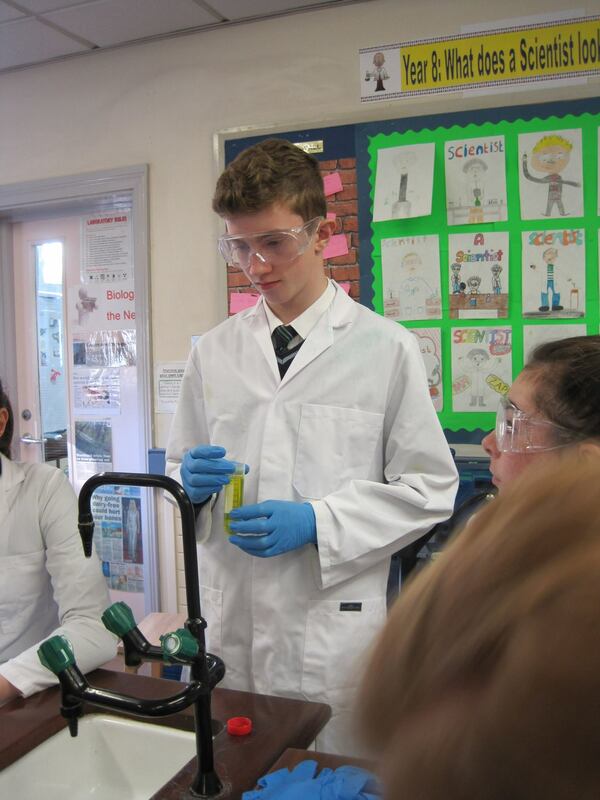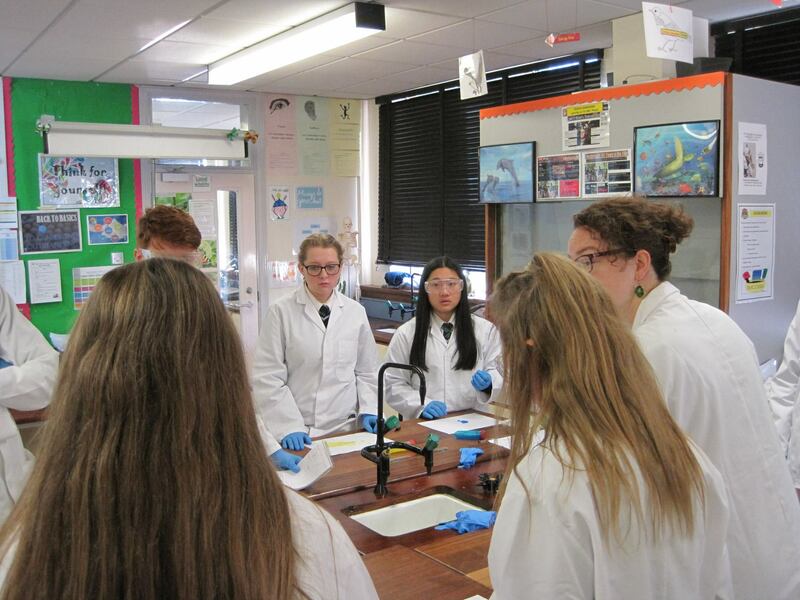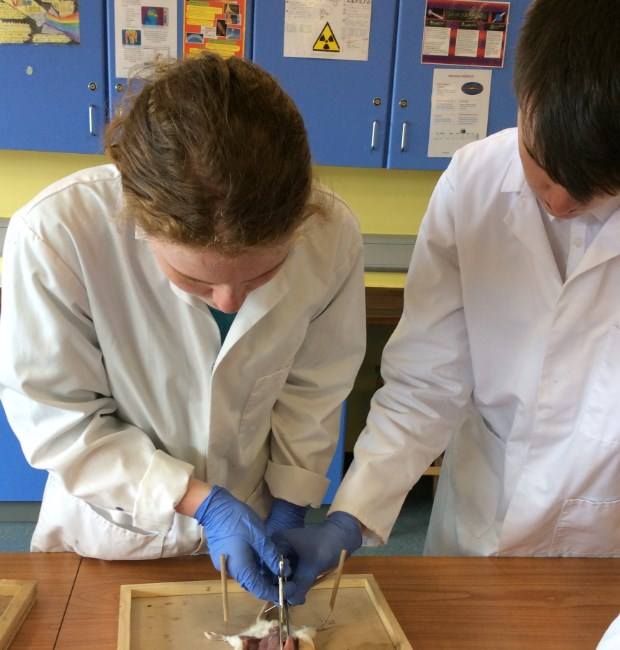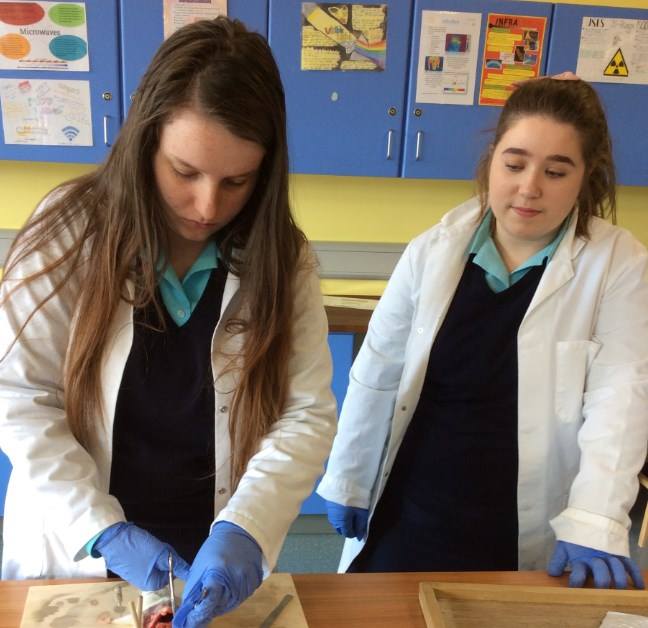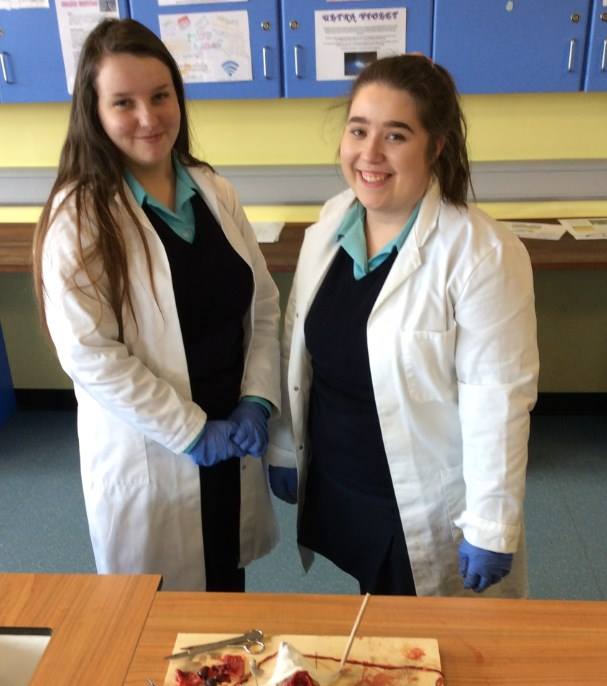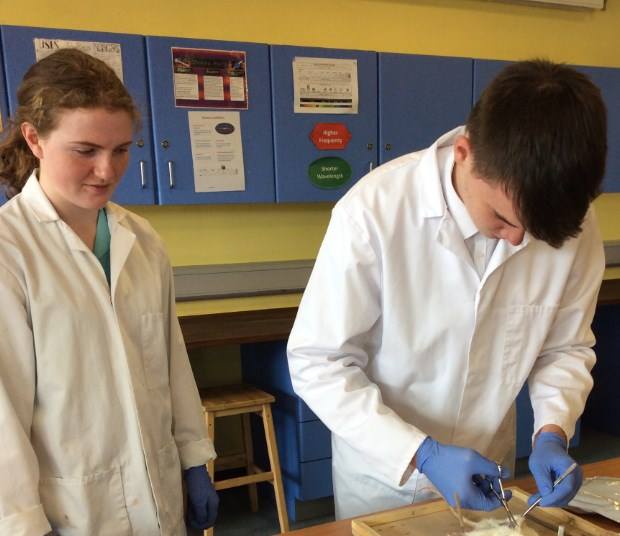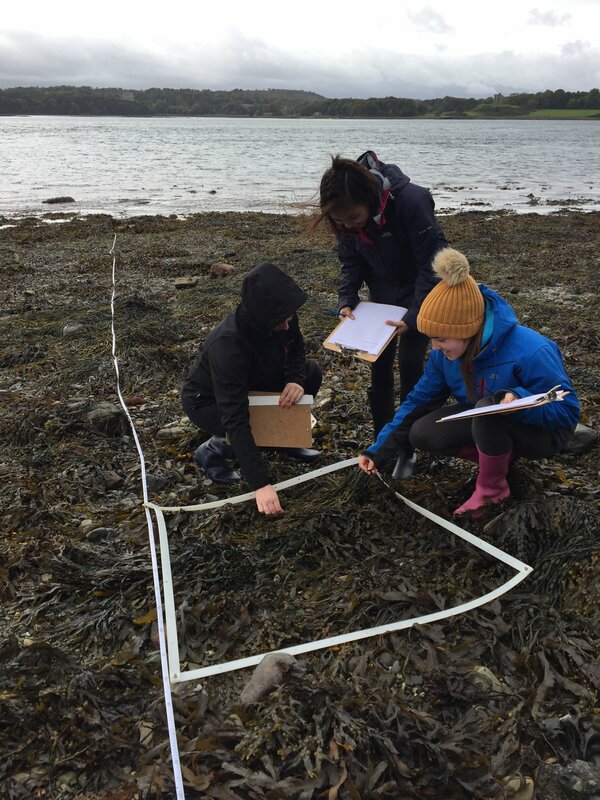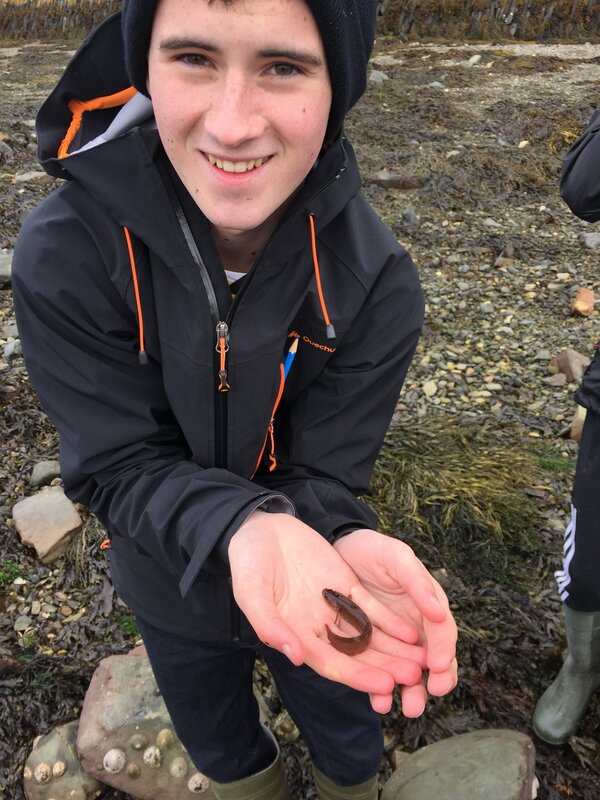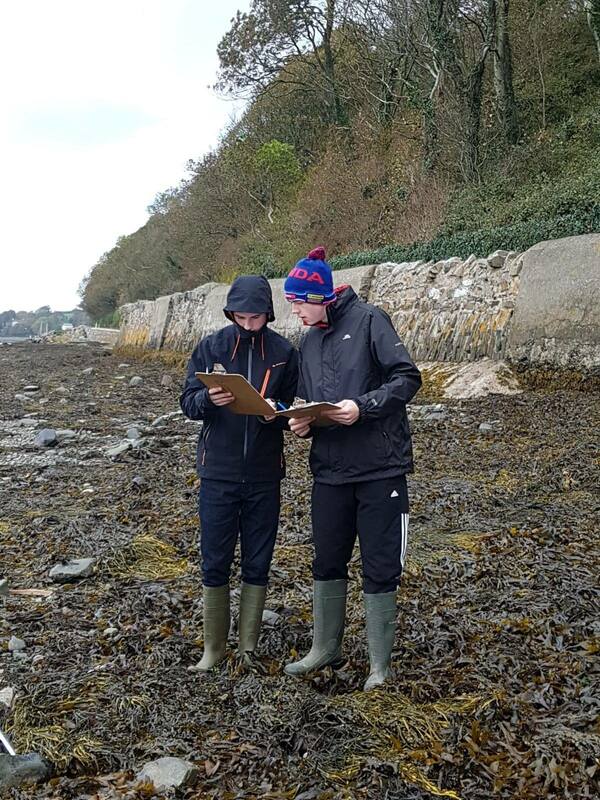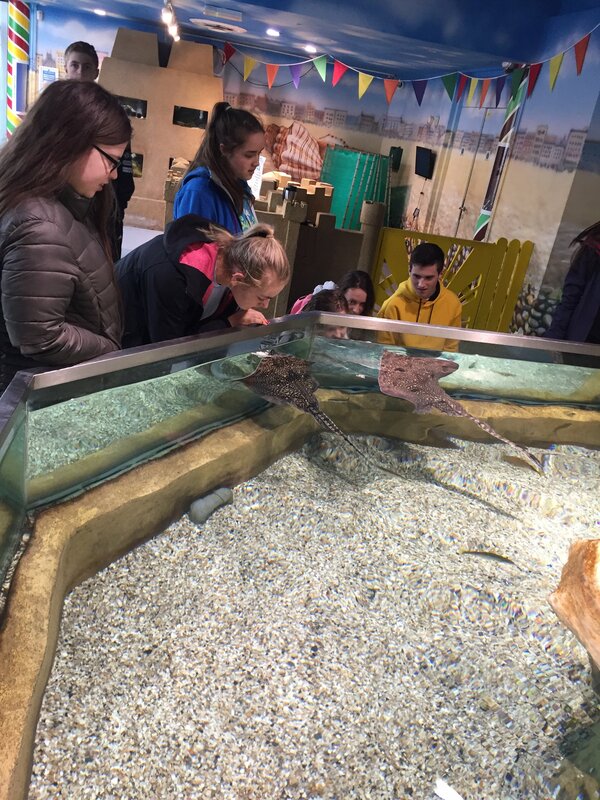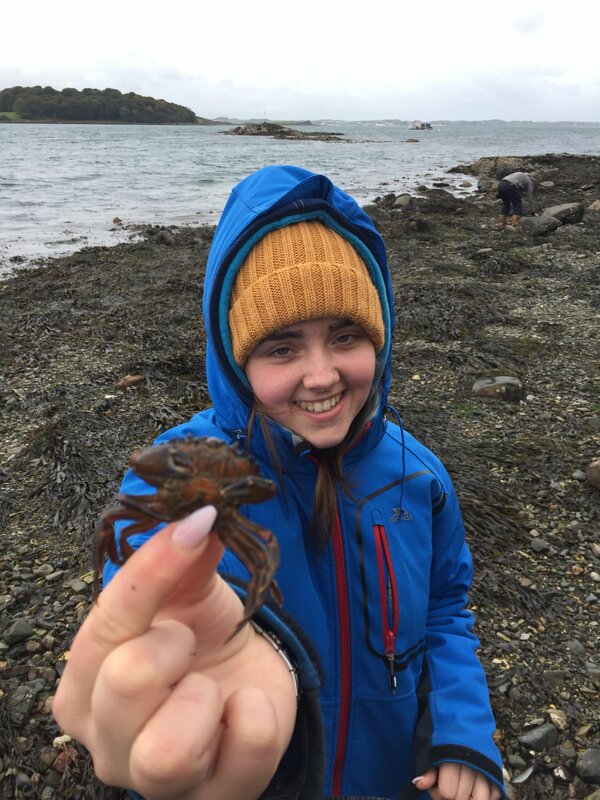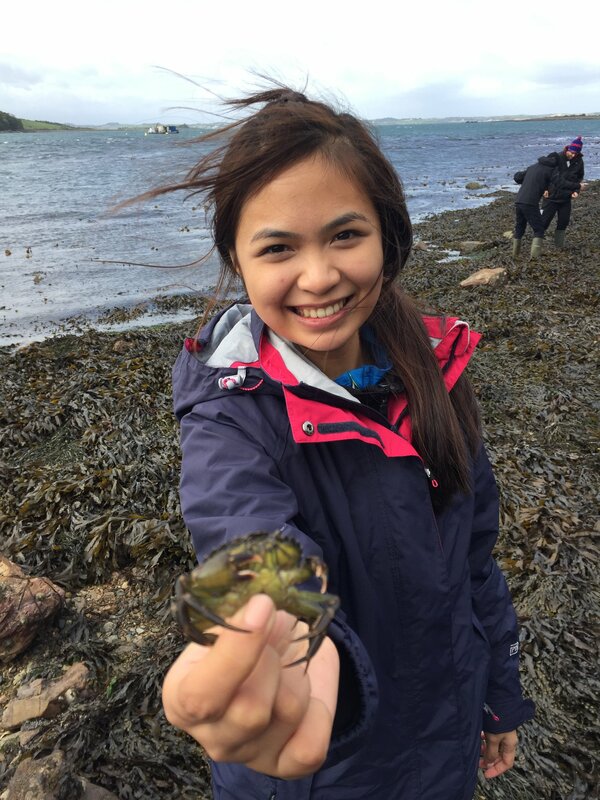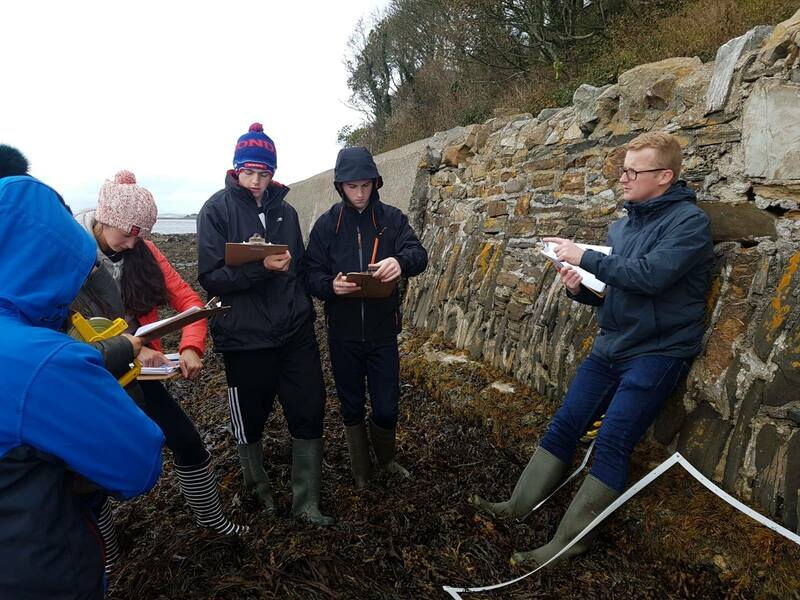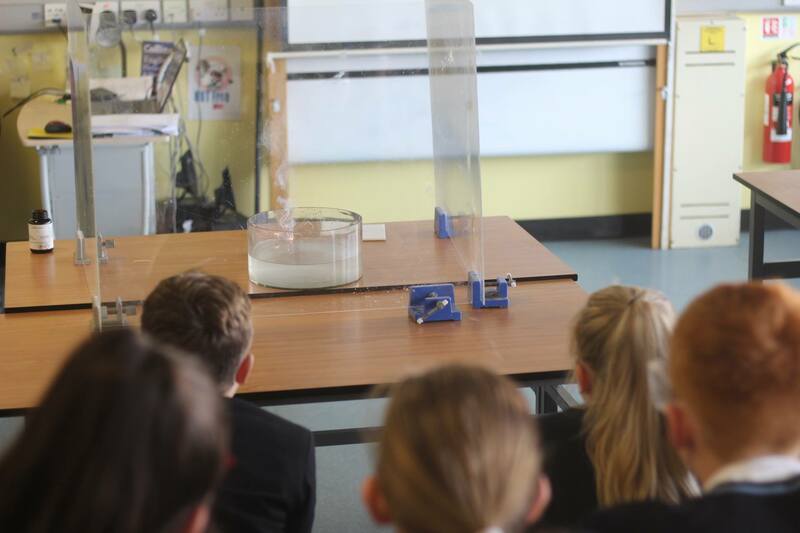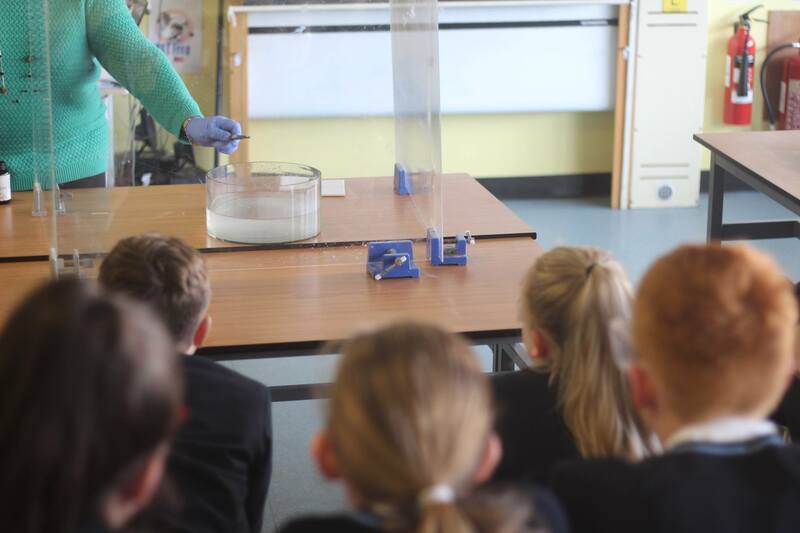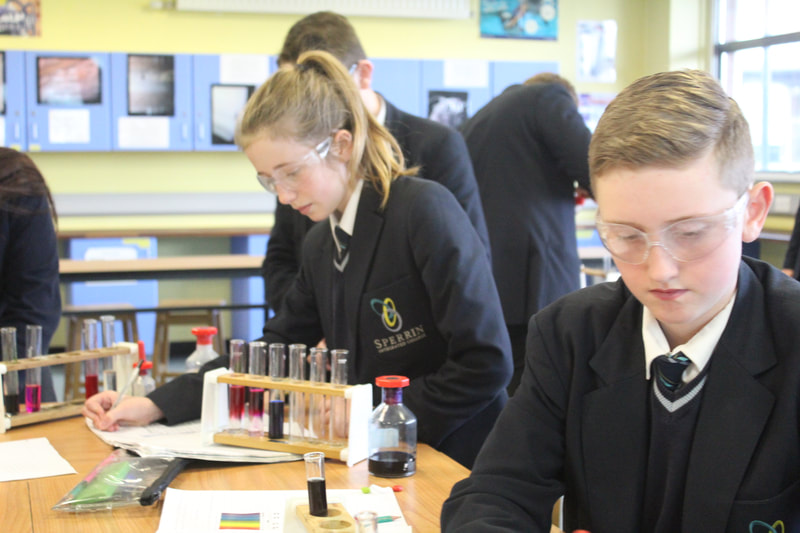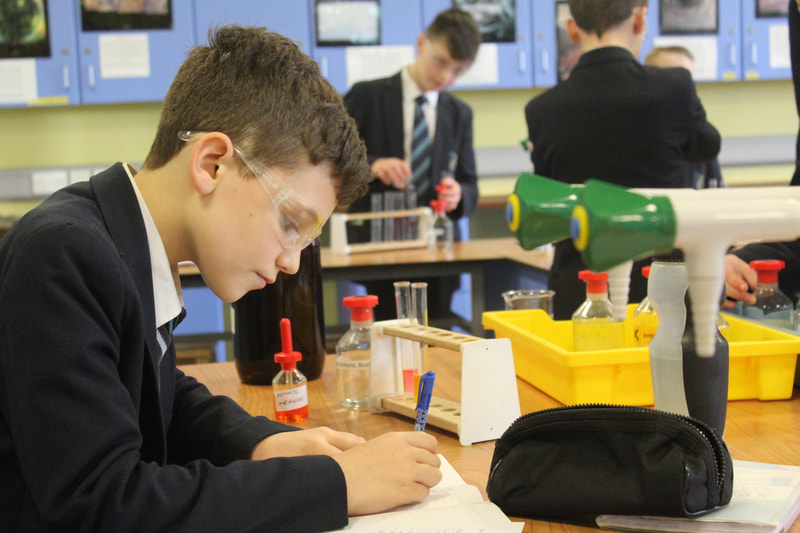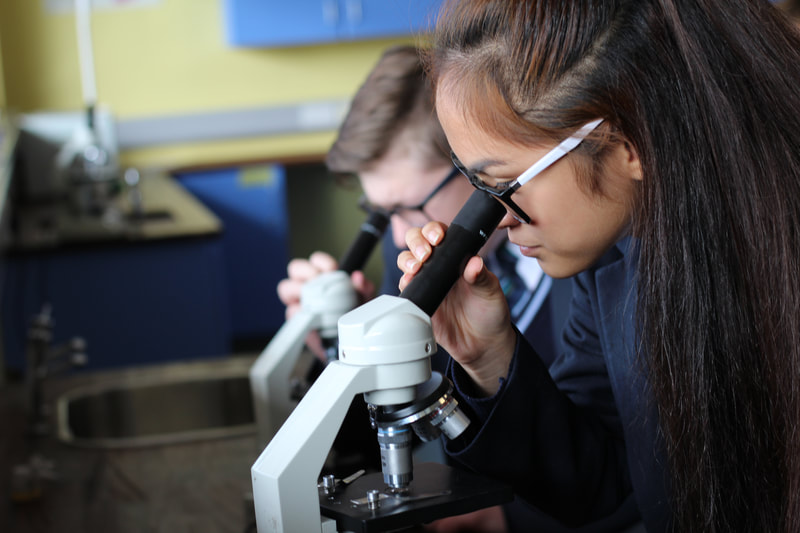Sciences
Teaching Staff:
Technical Staff:
Science is crucial to understanding the world around us and understanding the challenges and benefits of living at a time when significant scientific discoveries happen every day.
A basis in Science is becoming increasingly important, as pupils progress from education into employment. At Sperrin, we aim to prepare them for this and equip them with the necessary skills and knowledge to succeed in an increasingly scientific world.
KS3:
Pupils will learn a broad and balanced curriculum, incorporating all three strands of Science. The aim at KS3 is to develop an enjoyment and interest in Science. Pupils are encouraged to think critically and improve their problem solving skills. They will develop the necessary skills and knowledge to make use of Science within society and in preparation of further study.
GCSE:
All pupils will study Science at GCSE as part of one of three pathways, designed to cater for all.
CCEA Double Award Science
Students will study all three Sciences, studying for two modules in each, as well as a practical module.
Double Award Science prepares students for further study in the Sciences at A-level, as well as other pathways at KS5.
CCEA Single Award Science
Students will study all three Sciences, studying for one module in each, as well as a practical module.
Single Award Science prepares students gives students a broad knowledge of science, allowing them to pursue other pathways at KS5 requiring scientific knowledge.
OCN Applied Science
Students will study all three Sciences, completing one Internal Assessment for each unit, to gain a Level 2 Qualification (equivalent to a C grade).
They are intended to give learners the knowledge, understanding and skills that will enable them to progress to further learning or training.
A-Level:
Biology and Chemistry are both offered at A Level.
CCEA Biology
A curiosity about ourselves and the organisms with which we share the planet is innate for many people. Knowledge of biological processes has implications for a wide range of fundamentally important areas, including health, food production, conservation and, increasingly, technology.
This qualification is for students with an interest in living organisms and a desire to acquire a deeper knowledge of their life processes.
CCEA Chemistry
Chemistry is a subject which is always evolving as new problems arise and new solutions are found to solve them. It is the science most often required by universities and higher education establishments for learners to embark on degrees in medicine, dentistry and pharmacology, forensic and veterinary science, and chemical engineering. Topics such as Chemistry in Medicine and Fuel Cells allow students to appreciate how chemistry contributes to society.
- Mr M Parks - Head of Department
- Mrs C Calvin
- Mr J Hastings
- Mr M Maguire
- Mr N Small
- Miss E Flanagan
Technical Staff:
- Mr G Lacey
Science is crucial to understanding the world around us and understanding the challenges and benefits of living at a time when significant scientific discoveries happen every day.
A basis in Science is becoming increasingly important, as pupils progress from education into employment. At Sperrin, we aim to prepare them for this and equip them with the necessary skills and knowledge to succeed in an increasingly scientific world.
KS3:
Pupils will learn a broad and balanced curriculum, incorporating all three strands of Science. The aim at KS3 is to develop an enjoyment and interest in Science. Pupils are encouraged to think critically and improve their problem solving skills. They will develop the necessary skills and knowledge to make use of Science within society and in preparation of further study.
GCSE:
All pupils will study Science at GCSE as part of one of three pathways, designed to cater for all.
CCEA Double Award Science
Students will study all three Sciences, studying for two modules in each, as well as a practical module.
Double Award Science prepares students for further study in the Sciences at A-level, as well as other pathways at KS5.
- Year 11
- Biology Unit 1
- Chemistry Unit 1
- Physics Unit 1
- Year 12
- Biology Unit 2
- Chemistry Unit 2
- Physics Unit 2
- Practical Skills
CCEA Single Award Science
Students will study all three Sciences, studying for one module in each, as well as a practical module.
Single Award Science prepares students gives students a broad knowledge of science, allowing them to pursue other pathways at KS5 requiring scientific knowledge.
- Unit 1: Biology
- Unit 2: Chemistry
- Unit 3: Physics
- Unit 4: Practical Skills
OCN Applied Science
Students will study all three Sciences, completing one Internal Assessment for each unit, to gain a Level 2 Qualification (equivalent to a C grade).
They are intended to give learners the knowledge, understanding and skills that will enable them to progress to further learning or training.
- Life Processes and Living Things
- Materials and their Chemical Properties
- Physical Processes
A-Level:
Biology and Chemistry are both offered at A Level.
CCEA Biology
A curiosity about ourselves and the organisms with which we share the planet is innate for many people. Knowledge of biological processes has implications for a wide range of fundamentally important areas, including health, food production, conservation and, increasingly, technology.
This qualification is for students with an interest in living organisms and a desire to acquire a deeper knowledge of their life processes.
- AS 1: Molecules and Cells
- AS 2: Organisms and Biodiversity
- AS 3: Practical Skills
- A2 1: Physiology, Co-Ordination and Control, and Ecosystems
- A2 2: Biochemistry, Genetics and Evolutionary Trends
- A2 3: Practical Skills
CCEA Chemistry
Chemistry is a subject which is always evolving as new problems arise and new solutions are found to solve them. It is the science most often required by universities and higher education establishments for learners to embark on degrees in medicine, dentistry and pharmacology, forensic and veterinary science, and chemical engineering. Topics such as Chemistry in Medicine and Fuel Cells allow students to appreciate how chemistry contributes to society.
- AS 1: Basic Concepts in Physical and Organic Chemistry
- AS 2: Further Physical and Inorganic Chemistry and an Introduction to Organic Chemistry
- AS 3: Basic Practical Chemistry
- A2 1: Further Physical and Organic Chemistry
- A2 2: Analytical, Transition Metals, Electrochemistry and Organic Nitrogen Chemistry
- A2 3: Further Practical Chemistry

